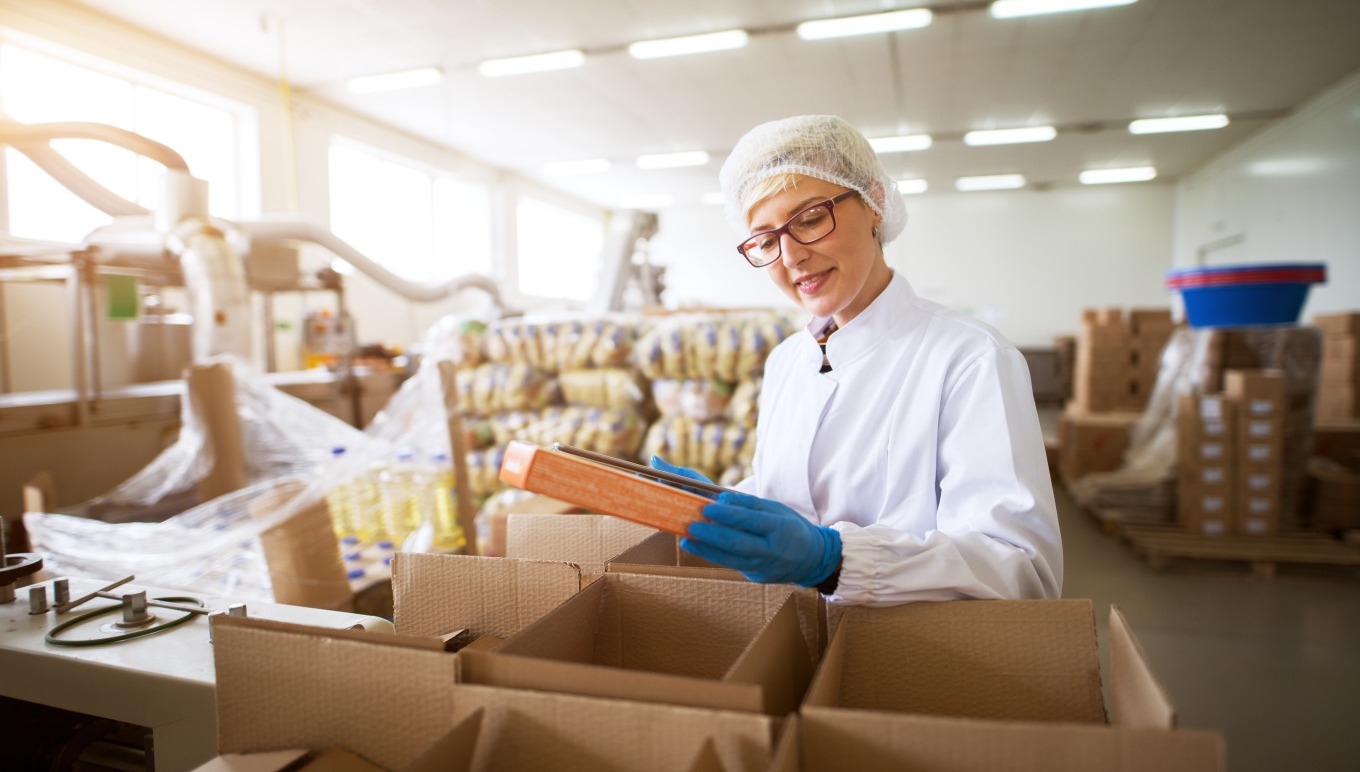Aptean’s Food and Beverage 2021 Global Symposium – The Importance of Total Traceability Session Recap
Aptean’s Food and Beverage 2021 Global Symposium – The Importance of Total Traceability Session Recap
Aptean’s Food and Beverage 2021 Global Symposium – The Importance of Total Traceability Session Recap

Up next in our series recapping the sessions from Aptean’s Food and Beverage 2021 Global Symposium is “The Importance of Total Traceability,” presented by Jack Payne, Aptean’s director of solution consulting for the food and beverage industry. In his more than 25 years of working with businesses in a variety of verticals, Payne has guided organizations with keen insight into holistic improvement and digital transformations, becoming a trusted expert on all aspects of operations.
Payne first underscored the growing attention put on traceability, citing its ranking in the top 3 trends to impact the food andbeverage industry over the next 5 years in reports commissioned by Aptean in both 2020 and 2021.
He then went on to:
Define the term “total traceability” and explain its importance
Highlight the advantages of industry-specific enterprise resource planning (ERP) solutions and the best practices these systems help facilitate
Explore the implications of the FDA’s New Era of Smarter Food Safety, and…
Give perspective on the farm-to-fork journey with consideration to the potential impacts of blockchain technology.
Read on for more on each of these key points.
What Is Total Traceability, and Why Is It Important?
To establish a clear understanding of the phrase, Payne broke down “total traceability” according to the components it requires. It goes well beyond knowing what food and beverage items are inbound, onsite at your facilities and outbound—it entails gathering granular information, accounting for context and variable conditions and vital food safety functions as well:
Bi-directional tracking capabilities from one end of the supply chain to the other
Real-time database updates as new information is collected and recorded
Details on involved equipment and personnel, in addition to materials and products
Food safety and quality data for both ingredients and finished goods
Automated recall notifications and functions for immediate withdrawal from in-process activities
In today’s food and beverage world, multiple parties are demanding total traceability from the companies that bring products to market. Organizations must ensure they are covered on this front in order to:
Protect brand reputation
Reduce health and safety risks to consumers
Meet customer requirements according to Global Food Safety Initiative (GSFI) standards
Remain compliant under the law of the Food Safety Modernization Act (FSMA) in the U.S. and similar legislation in other countries
Without complete transparency into your data and visibility up and down the supply chain, your food and beverage business is susceptible to food safety emergencies, expensive product recalls, legal penalties, loss of revenue and lower profits.
Advantages of Using Food ERP Platforms and Enforcing Best Practices
A proponent of modernization in the food and beverage industry and businesses creating a digital foundation for the future, Payne pointed out the advantages of today’s most popular solutions—food ERP systems—in maintaining total traceability. These platforms can:
Eliminate manual data recording methods via integrations with barcode scanners and automated logging of license plate and serial numbers
Apply consistent labeling across all processes and facilities
Facilitate inventory audits to ensure all materials and products are accounted for in the system
Industry-specific ERP solutions built with considerable hands-on experience and expertise in food and beverage operations, like Aptean Food & Beverage ERP, help to enforce best practices in all aspects of operations and individual processes. While Payne provided numerous examples in his session, here are a few key highlights:
Best Practices in Purchasing and Receiving
Work with suppliers to align labeling standards, ensuring all license plate and serial numbers are unique
Assign unique internal lot numbers to shipments when they share a supplier lot number with a previous shipment
Use quality holds and checks to make sure standards are met and all ingredients and goods fall within acceptable ranges for key attributes
Best Practices in Manufacturing
Scan material and product barcodes at each step in manufacturing processes, starting with the issuing of materials and packaging to purchase orders
If present, use a manufacturing execution system to record lots and batches for use in processing
Create unique barcodes for all finished production outputs at unit, pallet or lot level
Best Practices in Sales and Shipping
Employ informed, directed picking using first-expiry, first-out (FEFO) methodology
Confirm tracking details at both picking and loading for two-step verification
Scan barcodes to capture license plate, serial and lot numbers prior to departure
By facilitating these important steps and automating the data collection process where possible, food ERP solutions are the best option for enabling total traceability.
The Implications of the New Era of Smarter Food Safety
Officially announced in 2020, the U.S. Food and Drug Administration’s “New Era of Smarter Food Safety” focuses on the increased use of technology for total traceability, as well as smarter tools and approaches for prevention and response; new business models and retail modernization; and the creation of an industry-wide “food safety culture.”
With the ultimate goal of end-to-end traceability throughout the global food production and distribution system, the New Era platform aims to:
Standardize critical tracking and key data elements
Encourage adoption of new technologies by highlighting their benefits and scalable, cost-effective nature
Promote digital transformations to future-proof food and beverage organizations
As the details on new policies and requirements according to the New Era initiative become clearer, food and beverage businesses will have a more complete picture of what’s expected of them on the traceability front and how it will impact their day-to-day operations.
The Farm-to-Fork Journey and Blockchain’s Potential Impacts
For his final point, Payne framed the food and beverage supply chain through a different lens and touched on the ways in which blockchain technology might help to streamline traceability efforts across so many parties.
First, he explained the four stages of the “farm-to-fork” concept:
Farm: growers, packers and harvesters
Factory: manufacturers and processors
Distribution: foodservice, retail, industrial and ecommerce businesses
Fork: consumers’ homes, restaurants, institutions and entertainment outlets
Blockchain could be a game-changer when it comes to facilitating communication between all of these disparate entities. By serving as a secure, unalterable ledger that updates in real time with new information added by authorized users, it can keep everyone fully up-to-date and assured of accuracy, making total traceability that much easier to achieve.
Optimizing Traceability Outcomes with Aptean Solutions
We mentioned the decades’ worth of food and beverage industry knowledge that goes into the continued development of our purpose-built systems, but there are even more advantages to selecting Aptean as your solutions provider. For one, there’s the Microsoft Dynamics 365 framework underneath all of our offerings, which offers instant familiarity, ease of use and access to the latest technological tools.
That foundation also enables blockchain integration, as Microsoft has moved quickly to incorporate this new tool with its existing programs and applications. And on our side, we’re proud to provide flexible cloud deployments that maximize your operations’ agility, security and reliability while limiting up-front hardware costs.
Ready to learn more? For more information, see our Aptean Food & Beverage ERP product page or contact us directly today.
Be sure to also check back for more of our session recaps, and browse our Insights page for those we’ve published previously. And if you’d like to view any of our sessions on-demand, you can do so here.
Prêt à transformer votre entreprise ?
Nous avons les solutions ERP spécialisées dont vous avez besoin pour relever les défis de votre secteur.



 John McCurdy | Senior Content Writer, Marketing
John McCurdy | Senior Content Writer, Marketing